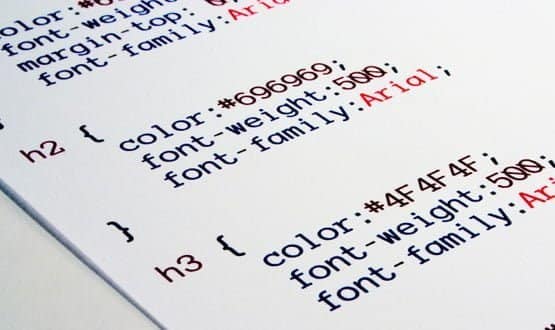Can you help me, Dr Geek?
- 6 December 2012

London was freezing cold and pretty wet last weekend. But that didn’t dampen the enthusiasm of a bunch of doctors for learning more about NHS IT.
Doctors from all over the UK came to the Digital Doctor Conference at the BCS in London, to hear about coding and how to build apps.
The conference – the first of its kind, but very much in tune with the gathering enthusiasm for hack days and app fests of all kinds – was created by a group of doctors and IT professionals who want people in the NHS to “geek out on technology.”
The more serious aim is to help clinicians get a better grasp of technology and make it easier for them to implement their own ideas.
Dr Martin Murphy, the clinical director at the NHS Wales Information Service, said it was energising to see doctors getting involved.
“I think it’s really encouraging that there are doctors who want to understand technology and how to use it to benefit patients. This sort of movement is really going to energise NHS IT.”
Learn how to code Kelsey-style
Tim Kelsey, the NHS Commissioning Board’s new director of patients and information, has said that he wants healthcare professionals to program, and he will be launcing a Code4Health initiative to get them to do just that.
He said this would give healthcare professionals skills to work with data and help unleash a powerful and disruptive wave of innovation on the health service.
The idea has met with a skeptical response in some quarters, with EHI commenters arguing that clinicians would be better spent helping programmers to understand their requirements than trying to build their own systems.
But those attending the Digital Doctors Conference were out and out enthusiasts. Not all the attendees grasped Javascript and HTML right away, but they were all very enthusiastic.
Dr Ashish Kalraiya, a junior doctor at Watford General Hospital, said the coding was what he had looked forward to the most.
“It was the main reason I initially signed up to the conference. My prior knowledge of coding was literally nil.”
He added that he would be sticking with IT. “While much of what was spoken about, even the absolute basics, went over my head, it still gave me an understanding of how apps and websites are coded.
"More importantly, it gave me the tools I needed to learn how to go away and code myself.”
Jeremy Walker, who taught the clinicians how to use coding, said he wasn’t expecting them to create complex systems.
However, he said doctors were used to long and complicated procurement processes and had no idea how easy it was to create a simple application.
“It’s important for doctors to understand the fundamentals of the systems they are using, so if they are involved in procurement, or even just involved in suggesting improvements, they can understand more about what is happening behind the scenes.”
There’s an app for that
As well as learning the basics behind building an app, the doctors were split into three groups to brainstorm actual app ideas. Each group selected their best idea, which was presented to a panel.
The session shone a light on what apps doctors wanted, but also on the problems they have experienced in the NHS and how they want to fix them.
Walker said that doctors have a unique insight into the average working day in the NHS and know where there’s room for improvement better than anyone else.
“Many of these problems are simple and could be solved so easily if the doctor had the ability to do so.”
One group came up with an app they named “shout”, which was intended to alert the right person when there was a problem on a ward – whether that was cannulas being out of stock, computers being broken, or a puddle of sick being spotted in a stairwell.
Dr Kalraiya, one of the doctors behind the idea, said: “As a junior doctor you see the problems of inefficiencies but you don’t know how to do something about it.”
He explained that the nurse in charge can differ from day to day and messages about what needs to get done get lost.
Another problem he said junior doctors faced was that they’re often on wards they didn’t know very well and therefore they wouldn’t know who to tell.
“If there was an instant reporting app where you logged a problem and it would go straight to the relevant person, we could easily do it,” he said.
In the patient experience category, the group wanted to create an app so patients know what’s going on with them in hospital.
Patients in hospitals spend a lot of time waiting for scans and tests without really knowing what’s going on, explained the group.
Creating an app were patients can see what tests they’ve got coming up and where they are on the waiting list for scans, could be useful.
“Stays in hospitals can be quite worrying for patients. Waiting for scans and blood tests, patients don’t know what’s happening.”
The group said the app could be delivered on the bedside systems already in place in most hospitals.
One of the event organisers, Dr Ed Wallitt, who was on the panel said the app was a great idea: “It could also be used to stop scheduling conflicts,” he said.
Another app idea was a diary app to keep track of development portfolios and the educational activities attended for GMC revalidation.
A Twitter phenomenon
The idea for the event started with a tweet. Dr Ed Wallitt, a doctor who left everyday medical practice to set up a medical IT consultancy and software development company, sent out a note on Twitter that said: “Would love to organise a tech tools course for docs covering #omnifocus and #basecamp”.
He soon had several others on board, including Dr Ann Marie Cunningham, a GP from Cardiff, neurology registrar Dr Stevan Wing, and haematology registrar Dr Wai Keong Wong (who, incidentally, heads up the advisory panel for EHI’s CCIO Leaders Network to encourage clinical leadership in healthcare IT).
When Dr Wallitt tweeted a couple of days later: “Let’s do it! Could also cover programming basics and a bit on how IT really works,” they soon had a plan together.
“This is about geeky doctors getting involved in IT,” said Dr Wong. He added that the conference was completely arranged online: “We don’t even have each other’s phone numbers.”
There is already interest in another, similar conference next year. And given the warm response to this event, and the general trend of NHS IT thinking, it seems likely to happen.




